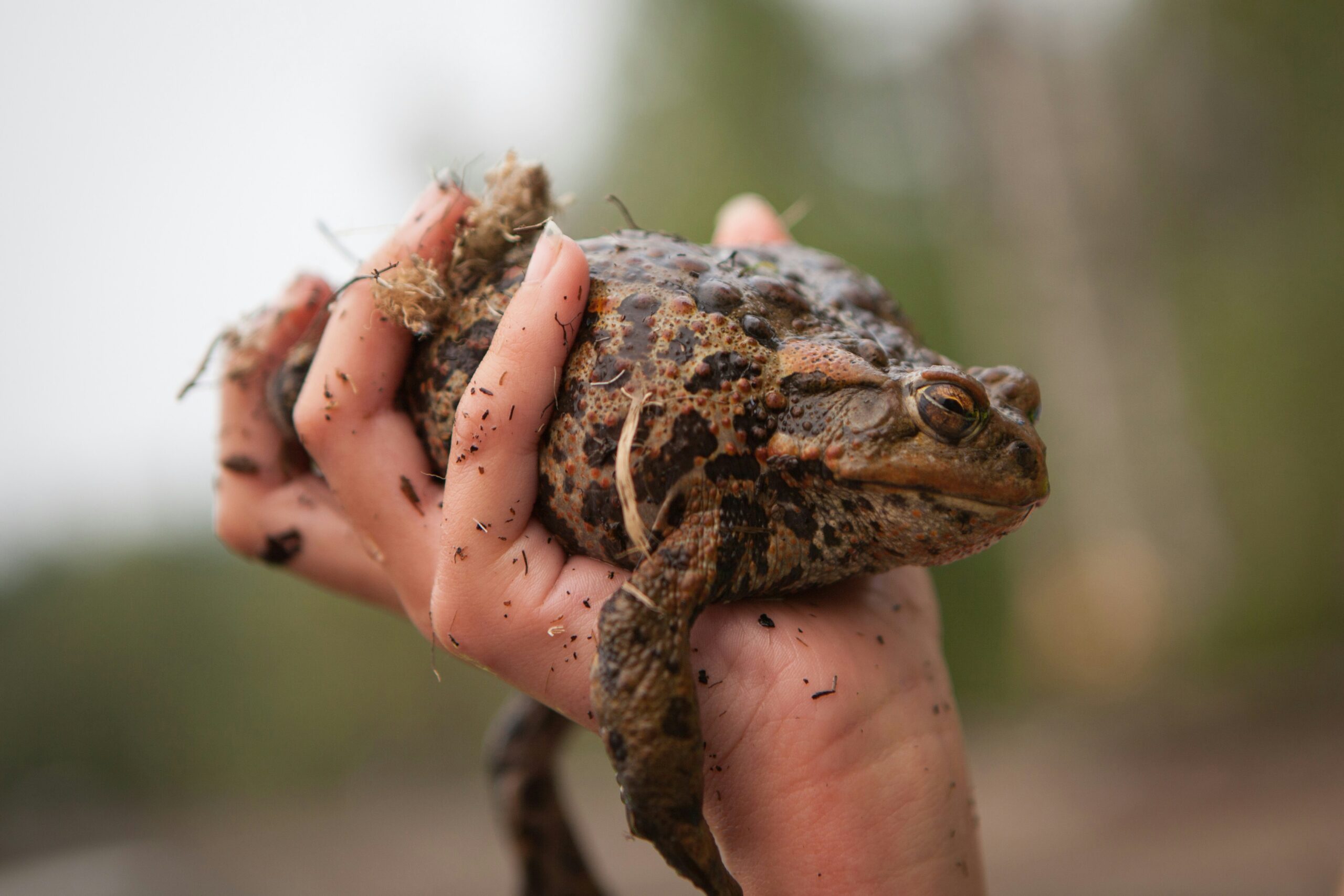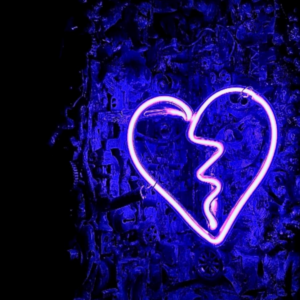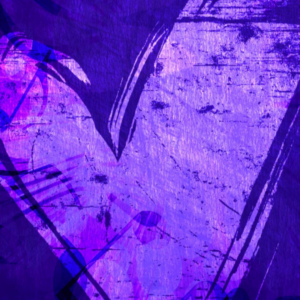Content warning: graphic dissection
Jerry and I run into the bicycle shed, frogs palpitating in our palms. The kettle fizzes, quicksands, groans on our makeshift stove. For too long this place has squirmed with screwdrivers and old toasters! Every shed would be ecstatic to be the site of an earthquaking discovery.
“Gloves on, Wyatt,” yells Jerry.
I drop the frogs into a jar and pull on snakeskin gloves. “Check!”
“And bleach?”
“Got it!”
“And lemons? And vinegar? And vodka?”
I stamp the table with bottles and pepper colorful refractions onto Jerry’s face. He cracks his knuckles, massages his temples, and pulls up his glasses. We exchange glances of certainty. Let’s do this.
We press the frogs to cutting boards and gently deteriorate their skin. Jerry juices them like limes that happen to have hearts and paste-white brains. He pins them by the webs and marks where to amputate—to him this is as easy as multiplication. The frogs don’t even try to run away.
“Can I keep that one?” I whisper, pointing a trembling finger to a particularly apathetic frog with blue smudges over its back.
“I doubt it’ll live longer than a few more minutes,” he responds, sliding a blade across the green perimeter of its legs.
Arithmetic, the bits of skin are hexagons, rhombuses… We cover them in honey and vodka and bleach, mix them with the blood, sprinkle them with chicken eyes.
“One day we’ll get our hands on a sheep eye,” sighs Jerry, syringes stuck between his fingers—garnet and bloody and amber liquids inside. “Want to see how I cut out their hearts?”
I crane my neck as he cuts into one of the frogs like a ravine. Jerry scavenges for the organ of love, through the dissected fruit layers and metropolitan veins, and pulls it out with pincers. It pounds. Once, twice… gone.
The frog is limp. I vaccinate it with a concoction of gasoline and thyme. Jerry lowers the tiny thing into iron shavings, massages it with two magnetic rods, and soaks it in champagne. He drops the corpse into a bowl of wine—the frog is Jesus without a cross.
We pour boiling water into the bowl and chemical rivers burrow into the cement of our bicycle shed. Bits of frog-skin paper mache onto the frog as it bubbles, fungies. It’s no longer a corpse—it’s life! New limbs grow like towns onto its sides. Jerry and I shake hands. This life will live in a jar, and I will feed it apricot slices and medium-rare steak.
“Pleasure working with you, Mr. Archer,” says Jerry.
“Could say the same to you, Mr. Archer!”
He places the mushrooming thing into a jar and pulls off his gloves. “It’s a good day in the Archer brothers’ laboratory! Write it down.”
I pull out a snakeskin journal and a pen. “Yessir.”
“Today, brothers Gerald and Wyatt Archer created an organism out of a dead frog. The organism is tinted teal, with a copper sheen on its wart-like growths. Further experiments will be recorded after dinner.”
We lock our little amphibian in a jar—Jerry drilled air holes and I nested some celery beforehand—and step toward the door. Jerry angles the key like a knife. He twists it and I notice a blue, copper-shining smudge on the back of his palm. It bubbles. It has a heartbeat.
“Jerry—”
“What?”
“Your hand, Jerry!”
He gazes at it, says words he really shouldn’t, and pulls out the bottle of hand sanitizer he always carries in his pocket. The smudge doesn’t budge, no matter how much alcohol Jerry smears on it.
“Jerry, you are going to die.”
After dinner we climb onto the roof of the bicycle shed and look at the stars. It’s a cathedral ceiling too high for any living person to reach.
“Jerry, what do you think happens after death?”
“I dunno…” The frog-stain has spread over two of his fingers now.
“Well, I think you go into this big big garden, right? And then you work there. But it’s not tiring at all! And you can do experiments!”
He sighs. “Just… shut up.”
“What?”
“Shut up, Wyatt, I don’t want to think about this.”
Silence seems like such a waste. So many thoughts to share—they’re chemical reactions, short-circuits, big bangs! And we’re to be silent.
Beneath us, Archers’ Monster stirs in its jar. I could teach photosynthesis and send him into the wild! He’d infect others, though, kill more brothers.
“Jerry, are you going to die?”
He laughs. “Do you seriously consider that?”
“Are you going to die, Jerry?”
“No.”
“Can you promise?”
“Well, everyone dies at some point.”
Of course he can’t promise. Of course he can’t promise!
Maybe I pity it, the amphibian in the jar. We’re its gods, and it’s trying to kill one of us. It’s a mutiny: no more Archer kings, just the being in the jar, the one and only. We created it to be lonely but numb to the lemony sting of loneliness.
I roll onto my stomach and gaze off the edge of the roof. Here by the bicycle shed would make a fine place for Jerry’s grave. And I’d place flowers from the apricot trees on it, botanical puffs of a botanical steam engine. Jerry and I once hung off the branches with one arm only and became pendulums inside a grandfather clock. Oh, how I love our garden. Even Death’s Garden can’t compete with it.
My tears slip onto Jerry’s future grave—he’ll miss our wonderful garden once he dies and has to work with stupid Death on his experiments! Maybe he’ll become a ghost and watch me dry up like a buttercup while he remains in the empty bicycle shed.
Not quite empty. Our little amphibian will still be there.
An hour ago, Jerry cut his infected thumb, spilled a pinprick of greenish blood onto the tablecloth, and bandaged the event away.
“Why do you have to be a murderer?” I ask the thing in the jar as I drench it in apple juice. It’s grown, and its stain on Jerry has grown, and the journal entries have grown like infected, resilient leaves. I wish a plague upon a plague. Why is it that plagues kill boys and not other plagues? A plague deserves to become a rotten orange with a worm inside each of its tiny capsules.
Dad steps inside. “Wyatt, where’s Jerry?”
“No idea.” The amphibian fizzes, and I shield it from my sun-father so his adultness doesn’t turn it to coal.
“Go find him, pronto!”
I shut the jar and slouch through the door. Jerry could be in the realm of twilight fish, beneath the soapy stains atop the pond. Or in the hoarse, feverish sand where rattlesnakes rule. He could’ve gone fishing for sky birds or dead people, sheep eyes or pig blood. Or he could be dead.
I run and scream, “Jerry, Jerry! You better not be dead.” Pond? No silhouette bugs its waters. Sandpit? No shadow builds catacombs in it. The small patch of woods by our house is the only place he could be.
Maneuvering between the trees, I find myself pressed between a birch and a shadow. I may be in the dark, but the patch of woods isn’t—maybe the girl in the center decided to blind the sun today.
She has the legs of an antelope and a wolfish head, inky nostrils, and lips—well, I can’t see the lips, because my own blood and flesh brother is devouring them like cloudberries. His arms become garden snakes to wrap around her figure. The girl presses her invisible ink lips onto the webbing that grows between my brother’s fingers now, onto his brain-overfilled forehead, and the sea-snail of his ear. I’d rather he hug a real antelope.
“AH!” I scream.
“AH!” the girl screams.
“WYATT!” Jerry screams.
“JERRY!” I scream back.
“GET OUT!” he hollers.
And I run.
My blanket has airships on it. Jerry and I attempted to build an airship in our garden once, only to find out that planks and bottles wouldn’t bend under the force of our arms. Shards of glass made Jerry’s palms bleed till they were painted entirely red. He fashioned a needle out of a snake fang and sewed the cuts together with thin strings of grass. Scars still engraved his skin, and when neighbor girls asked him about them, he claimed he got injured fighting a mountain lion. But I suppose the frog skin covers most of his palms now. No more showing off, Jerry!
Someone taps on the window. I peel the curtains and from behind the glass stares a green creature. One of its eyes has a slit for a pupil; a crudely chiseled nose glistens with anises of human skin. It presses its webbed hand to the window. No scars.
The moon glances at the other side of the face. It’s very much human, or as human as anything at night can be.
“Jerry, what are you doing here?” I mutter.
“Will you let me climb through your window? The front door is locked.”
“Why the heck aren’t you in your room?”
The amphibian-Jerry hesitates. “I went to the river. With Mark and Steve, you know them.”
“I bet their sisters were also there.” A crane-girl and a fox-girl to join the antelope-girl in the trinity of girls Jerry shouldn’t have kissed.
“No, they’re not that stupid,” he laughs. “Wyatt, let me in.”
“I will do no such thing.”
“I’m your brother! You don’t want me to freeze to death in the bicycle shed, do you? With… the spiders?”
“And the Archers’ Monster.”
He scoffs. “That thing is dead by now. It couldn’t have lived more than an hour!”
“No, I checked before dinner.” I walk to my poster illustrating local insects and pretend to be interested in the dragonfly. A clock crescendos. It’s midnight now. I wonder if there are insects in Death’s Garden. Jerry wouldn’t be happy there, then. When I was five, I caught a butterfly in a jar and he drowned it in the river. The jar was sealed. Maybe Jerry went diving for it, for the touch of cardamom in that jar, perhaps, some lemon zest, the tang of a dead butterfly… Jerry must’ve wanted to breathe all that.
“Wyatt.”
“What?”
“Let me in.”
I press my pale hand to the glass so it jigsaws with his. The monster sowed its seeds in Jerry’s brain as well and exchanged blind worms for genius. I open the window. My brother slithers inside and leaves behind a green imprint on the wallpaper. He pauses before the insect poster, absorbs his diluted reflection in the glossy frame, and a smile buds on his lips.
A week later we come to the pond where we caught the frogs. Jerry lies in finger-deep water, half his body amphibian and half his body human. His skin is a tactile map with mountains, ridges. Erosion has wreaked havoc on this world. Storms, hurricanes, what hasn’t it seen? Ice ages? Volcanic eruptions?
I gesture to the gill developing on the side of his neck. “Can you breathe underwater now?”
“Yeah, I guess.”
“Cool.”
Our parents screamed and talked to witches and fortune tellers. I asked them what tarot cards they saw, but Mom wouldn’t tell, and seemed very upset with me.
Jerry ripples the water once, twice.
“Why did you kiss the antelope girl?”
“Elizabeth? Because I wanted to.”
“Why would you do that, Jerry?!”
He shrugs. “People do it all the time!”
“Adults, not us.”
A list of things Jerry did that he shouldn’t have: kiss Elizabeth the antelope girl; go to the river with his friends at midnight and not tell me; climb down a well to pick mushrooms off its womanly sides; fight a deer for his antlers; steal Dad’s Swiss Army knife. Half those things I saw and half those things I heard from boys who were proud to have a hero in the neighborhood.
Is that what dying people do? You’d think they’d want to be obedient, so the Gardener feeds them berries instead of stale bread and lets them drink cool water while they work.
“Will you tell the Gardener hello for me?”
“What?”
“The Gardener, Jerry.”
The water combs his long ivies of hair. “You don’t seriously believe in that, do you?”
And then he sinks underwater, for a second longer than he should, face stain-glass’d by the moon and leeches and freshwater shrimp.
“Jerry, Jerry, Jerry, are you dead yet? Are you dead yet?” I sob.
He waves with both his webbed hand and the wintry, fleshy one. Eyes gloss beneath the water like two lollies. He mouths something, but I’m spiraling far, far, far. Twigs snap around my shoulders. I throw myself into the bicycle shed and the bottles shake as if they’re afraid.
A lighter flicks in my hand, a juice spills. I slash it once, twice across the air, to see if the universe covers in blisters. I’m a master now! The amphibian in the jar bubbles copper in panic when I bring my lighter close. But no-no, I won’t kill it that simply. I’m not so cruel.
First I drown it in numbing spray, throw in some chicken eyes, a tiny bit of candle wax, a bit of deer horn, a bit of sanitizer. The amphibian writhes and sobs in silence, or so I think.
I step outside and drop fire into the jar. I’ve created death, I’m a ring-master! I can make death do somersaults in its translucent cell. It will forget the taste of sugar, apricots, and steak.
“Say hi to the Gardener for me, will you?” I whisper to our creation. “You’ll make a very good worker for him, little amphibian.”
I pour its lacquered ashes next to where Jerry’s grave will be.




